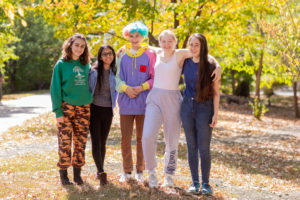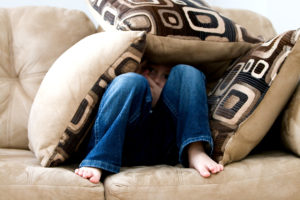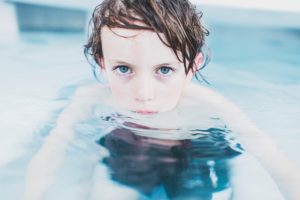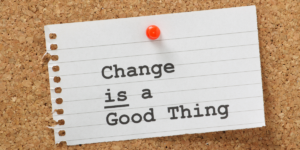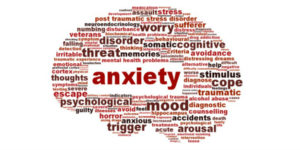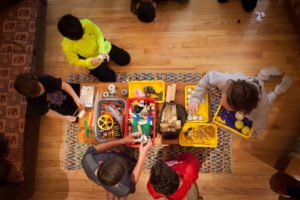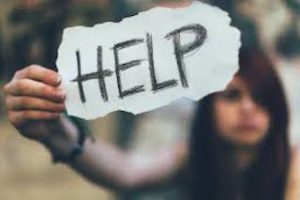Social-Emotional
Culture of Kindness
We have all heard the term “Mean Girl.” According to a recent school study, nearly 1 in 4 girls reported being bullied during the year. This is in sharp contrast to only 17 percent of boys report being bullied. A recent AP article reports girls are 3 times as likely to experience cyber or text bullying than their male counterparts. It is clear that girl-on-girl bullying is on the rise and is impacting students on a daily basis across the country. But does it have to be this way? Recently, The Sycamore School, Arlington Magazine, and Mothers of North Arlington (MONA) co-sponsored a community screening of the documentary Finding Kind. Following the screening, our school counselor facilitated a discussion with the parent and child attendees about the documentary. As the group processed the documentary, there were a few key takeaways. Small Changes Make Big Impacts Change can start small.…
Read MoreSteps to a successful Middle School experience
Recently, the Washington Post featured an article Seven ways parents and educators can improve kids’ middle school experience. This article does a great job describing both actions we as parents can take and highlighting steps schools have successfully taken to improve the middle school experience. As I read the article, it felt as if they were describing The Sycamore School and our core tenants. At The Sycamore School, we integrate academic development, social-emotional growth, and civic engagement. The result is a school environment that is designed to provide the best middle and high school experience for our students. Here are examples of how our school is designed for a positive and rewarding school experience. Trust them with responsibility – Instead of offering whole class instruction, our students work at their own pace and use teachers and classmates as resources and guides to help them problem solve and work through challenging…
Read MoreBack to School Jitters? Or a Bigger Issue?
On the first day of school it’s hard to tell who is more nervous, parents or students. You all want the school year to be a success, but there is some doubt and worry that it mightnot go as well as hoped. First day excitement and nervousness is very normal. Some students get excited by a new school year full of old friends and new experiences. Other students worry about new teachers, keeping up with the demand of a new grade, and just the overall unknown, which is also completely normal. Over the course of the first few days to weeks of the school year, most students will start to settle into the rhythm and routine of the new school year. Some students may even take a month or longer to fully settle into the new school year, which can also be completely normal. How do you know your student…
Read MoreInstead of being a snowplow parent, give your kid a shovel and show them how to use it. Helicopter parent, snowplow, lawn mower, bull dozing, blackhawk, tiger mom…there are an increasing number of phrases used to describe today’s parents in a pretty unflattering light. We hear that seemingly well-meaning parents are actually doing harm to their kids, all under the guise of parenting. The latest high profile case was parents bribing SAT/ACT proctors, fabricating their children’s transcripts, and paying off college coaches to get their children into “elite” colleges. Let’s be honest, we all can identify with at least some of these traits. How many of us have called up our children’s school to request a certain teacher, made a point of ingratiating ourselves to our child’s coach in the hopes of getting them more playing time, volunteered to be a room parent in order to get the inside scoop…
Read MoreWe switched schools mid-year. Maybe you should too.
Guest Post by Current TSS Parent If your 5-10th grade student isn’t thriving at their current school and you are considering other options, I highly recommend The Sycamore School (TSS). Our daughter transferred in November, and it’s one of the best decisions we’ve made. She went from having terrible school anxiety and refusal, to happily skipping inside the building and being incredibly proud of her school. She had horrible math anxiety, and now signs up for extra math classes to try to improve her math. She tells me that she now likes math! What makes TSS different is the small, personalized, engaging, and experiential learning. There is a lot of choice, and with that comes personal accountability and responsibility. TSS recognizes all students don’t learn the same way. They accommodate a variety of learning styles by offering a choice-based learning model with personalized instruction. In their words: “TSS is for students who would…
Read MoreRising Anxiety in Youth
Educators and clinicians across northern Virginia are seeing a significant increase in the number of youth who are experiencing some level of anxiety. We’re also seeing the onset of anxiety start at a younger age and many children are significantly compromised by its affects. There is an increased prevalence of school avoidance, school refusal and somatic complaints. Anxiety can take many forms and some students are very good at masking it. Some students wear their emotions on their face. For those students, the anxiety is quite apparent. A student might have a look, their cheeks get red, their speech quickens or their expression changes. Other students hide their anxiety quite well, but parents report that when their child comes home, he or she falls apart. Some students start to exhibit physical symptoms, such as headaches and stomach aches. Other students start having difficulty sleeping. The question weighing on our minds…
Read More5 Signs Your Kid’s School Isn’t A Good Fit
Summer is a good time to reflect on your child’s school and think about whether it’s a good fit. Did your child seem happy at school? Have friends? Enjoy learning? With back-to-school upon us, is your child upset about going back? Here are five signs your child’s school is not a good fit: School avoidance: Does your child not want to go to school? Does he/she struggle to get to school on time? School avoidance is a good indicator that something is not right at school. It could be academic, social or both. Unhappy: Does your child come home unhappy? Many parents report that their child is able to hold it together at school but when they come home, they fall apart. This is a signal that they feel anxious or stressed and are using a lot of energy trying to keep it together at school. Other children complain about…
Read MoreCreating a Culture of Kindness
Hearts are breaking in communities all over our nation in the aftermath of yet another devastating school shooting. How do we keep our children safe? How do we change our culture? I contend that if parents, teachers and leaders would teach and model kindness, empathy and perhaps even courage, we would make significant progress in our quest to keep our children safe. Part of having a safe community involves us taking care of one another. How well do we know our community and how much do we reach out and support others? Get to know your neighbors. Check in with them. Help each other out. Teaching Empathy At The Sycamore School, we’re teaching our students how to positively impact their community. At school, students apply for jobs that include a school counsel member, peer mediator, timekeeper, dog handler and shopkeeper. Through these jobs they learn not only how to monitor…
Read MoreTo Love Learning
by Karyn Ewart, PhD. “He used to love school,” is a common refrain I hear from parents. Too many students are falling out of love with school after elementary school, when school transitions from hands-on learning to rote memorization, layered with a lot of homework and a culture of acceleration. Schools are holding college preparedness workshops at the end of elementary school; middle schoolers are taking numerous high school credit courses; then, in high school, students are encouraged to take as many AP classes as possible, so that they can earn college credit. The result of this acceleration? Students are constantly worried about how to get ahead instead of being present. How do we stop this vicious cycle of stress and help our kids learn how to learn? Parents are afraid to ask this question. They need to understand that we can’t engineer a good life for our kids by…
Read MoreYou’re not SOL at The Sycamore School
It’s SOL testing season, a time where teachers are stressed out and kids are wishing school was done for the year. What are SOLs? SOLs are the Virginia Standards of Learning. They describe the commonwealth’s expectations for student learning and achievement in grades K-12 in English, mathematics, science, history/social science, technology, the fine arts, foreign language, health and physical education, and driver education (Virginia Department of Education, 2017). The SOLs include curriculum frameworks, scope and sequence guides and standardized tests that determine minimum competency in a subject area. Unfortunately, the SOL testing pass rates impact school ratings, school funding and are one of the criteria for obtaining a Virginia high school diploma. The Negative Impact Virginia public schools are increasingly resorting to scripted teaching, requiring teachers to teach in a prescribed manner, with identical scope and sequence. In short, teachers are not trusted to independently teach and assess their students…
Read MoreThis article first appeared in early March 2017 in the Arlington Sun Gazette and InsideNOVA. The 2017-18 school year will bring the arrival of a new option in local education with the opening of The Sycamore School – a nonprofit, independent secondary school in Arlington. The inaugural class will include students in grades 6 to 8, eventually growing to 12th grade. Learning will be self-paced, and the school is “a good fit for students who are bright, curious and may not be thriving in their current school environment,” school officials said. The Sun Gazette recently queried Dr. Karyn Ewart, the founder and head of The Sycamore School, about how the institution will stand out among public and private education in the community. Questions and answers are below. One Arlington political leader used to always ask, when tackling an issue, “What problem are we trying to solve?” What problem, or challenge, in…
Read MoreStress and Teenage Suicide
We’ve lost another Northern Virginia teenager to suicide. We shouldn’t be surprised. Northern Virginia high schools have turned into the Bermuda Triangle of stress: high achieving students + high achieving parents + high achieving school system = teens who are overloaded, over-scheduled, stressed out, sleep deprived, overly focused on grades and pushed to their limits. Stress has become the norm and the damage it’s causing can’t be underestimated. The 13 Reasons Why TV show on Netflix, based on a book of the same name by Jay Asher, has sparked controversy among mental health professionals, educators, parents and teens. Some people think the show is powerful and sparks meaningful dialogue with teens. Others feel it glamorizes suicide and has led to increased teen self-harm and suicide attempts. Blaming the show for teens increased risky behaviors seems to be missing the point. Kids who are emotionally healthy don’t hurt themselves or make…
Read More- « Previous
- 1
- 2
- 3
- 4
- Next »

